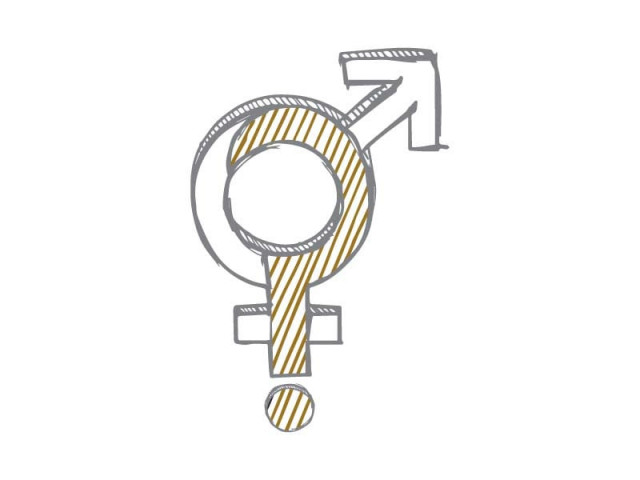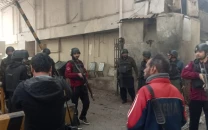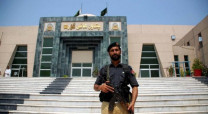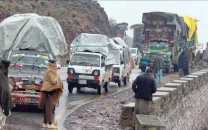Bajaur transgender population’s dilemma
Trans individuals are unable to access social welfare programmes, forced to live in hiding

When she stepped into her local National Database and Registration Authority (NADRA) office in Bajaur, Nasreen Bibi was shocked to find that the officials did not know that transgenders had a separate identity card.
Nasreen, already reeling from the shock, felt humiliated that the state of transgender rights was so bad in the country that NADRA officials could not believe that she was capable of having her own identity. “I have no regrets about being transgender; God created me. From now on, I will fight for the rights of all transgenders in the area as no one is working to solve our problems,” Nasreen announced, while lamenting about the difficulties she and others from her community face in Bajaur.
The 24-year-old, Nasreen, and her two sisters who are also transgender, were born in a village in the Bajaur district. One of Nasreen’s sisters transitioned into man through surgery and left the village to move to Sahiwal in Punjab, to find work after getting married. Her other sister, Zakra, is only 18 years old. “We live in a small mud house and our father works in a mine daily, but his wages are not enough to support the whole family,” she informed this correspondent. Tired of living below the poverty line, Nasreen decided she needed her own identity card to take advantage of the provincial government’s social welfare programs.
Little did she know that her decision was only the start of her problems as according to her she was sent from one place to another to verify her identity. “I was being sent from the NADRA office to the social welfare office and then sometimes to the office of the medical superintendent; every office was a new test for me. Despite all these tests, I still do not have my own identity card,” a visibly sad Nasreen narrated, adding that the card she had received, back in March of 2021, indicated that she was a woman but she was not comfortable with it.
Read More: Transgender schools: road to education for all
“There are many transgender in Bajaur, but their family members do not want them to have separate identity cards or get a job because they are ashamed. Even if they find the courage to register with NADRA they will have to navigate several hurdles,” Nasreen said despondently.
An official in NADRA’s Bajaur office, when inquired about the plight of Nasreen in acquiring an identity card, conceded that they had messed up because her case was new for them. “At first we did not know what to do or whether a separate card was even possible. But then we learned that a social welfare certificate was needed and therefore we referred her to the social welfare department,” the official told The Express Tribune whilst requesting anonymity.
The Express Tribune also learned that the social taboo against identifying as transgender is one of the reasons why Bajaur’s total transgender population is unknown but an official from the Bajaur Social Welfare Department, Fazal Amin, estimates that there are hundreds of transgender individuals in the district. “Even though there is a significant transgender population here, due to the society, they do not register for separate identity cards and social welfare,” Fazal explained, “most trans people over here live in secrecy and grow old by pretending to be women.” However, Nasreen’s case has now led the department to start registering the transgender population separately, as per Fazal.
Nasreen, however, believes that her ordeal is far from over. “I request the NADRA Chairman to issue me a transgender identity card so I can benefit from the Ehsas Qifalat program and other welfare programs,” she appealed while talking to The Express Tribune.
Published in The Express Tribune, March 16th, 2022.


















COMMENTS
Comments are moderated and generally will be posted if they are on-topic and not abusive.
For more information, please see our Comments FAQ